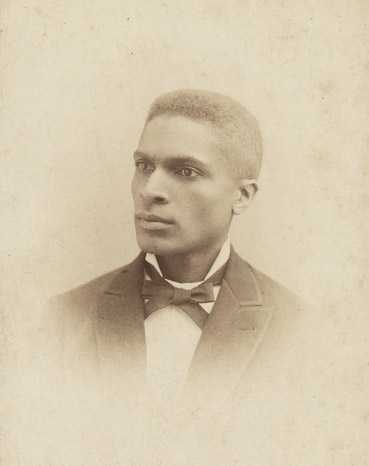
This article is part of a monthly series highlighting local DEI trailblazers, written by RCBA Diversity Committee Members.
By Racey Rodne
When learning about Fredrick McGhee there is one thought that continued to bug me—“How in the world have I not heard of this person?” Generally, lawyers have nineteen years of education—twelve grade school, four undergrad, and three law school. This was my path— back-to-back-to-back. Throughout those nineteen years, I do not remember learning about Fredrick McGhee at any point in my studies. While some of those years may be blurred, specifically early education and then somehow again in undergrad, I still do not remember hearing about this great civil rights leader that settled down in St. Paul.
 This is unfortunate as Fredrick McGhee is a source of local inspiration. Born a slave in Mississippi, he escaped when the Union Army passed through his hometown. McGhee received his education in Knoxville, Tennessee and then moved to practice law in Chicago. Eventually he was recruited by the African-American Newspaper “Western Appeal” to move to St. Paul in 1889.
This is unfortunate as Fredrick McGhee is a source of local inspiration. Born a slave in Mississippi, he escaped when the Union Army passed through his hometown. McGhee received his education in Knoxville, Tennessee and then moved to practice law in Chicago. Eventually he was recruited by the African-American Newspaper “Western Appeal” to move to St. Paul in 1889.
Upon moving to St. Paul, Fredrick McGhee became the first Black attorney in the state of Minnesota. McGhee instantly became a leader in the St. Paul community and associated with other local leaders like John Ireland. McGhee was also a national civil rights leader and he hosted the National Afro-American Council Meeting in 1902.
Supposedly while Fredrick McGhee and W.E.B Dubois were on a fishing trip in Wisconsin, the two created the idea for the Niagara Movement. The Niagara Movement was in contrast to Booker T. Washington’s Atlanta Compromise. Specifically, the Niagara Movement was centered on full equality and an end for discrimination, whereas the Atlanta Compromise argued for hard work and entrepreneurship that would eventually lead to equality. The Niagara Movement did not gain the steam needed to continue but was the seed for the National Association for the Advancement of Colored People (NAACP). Dubois in fact credits Fredrick McGhee with the creation of the NAACP.
In my learnings of Fredrick McGhee, it has always remained unclear why our local St. Paul civil rights legend is not concreted into our minds like Booker T. Washington or W.E.B. Dubois. He was a St. Paulite that demanded more from his community and a true source of local inspiration.
Note from the author: I drew most of the information contained in this article from McGhee’s biography “Fredrick L. McGhee: A Life on the Color Line, 1861-1912” by local author, and often contributor to Minnpost.com Paul Nelson. Additionally, you may find a variety of articles on Fredrick McGhee if you take a deep dive into the internet.
Racey Rodne, who practices personal injury law with McEllistrem Fargione, P.A., is co-chair of the New Lawyers Section, and a member of the RCBA Board and the Diversity Committee.